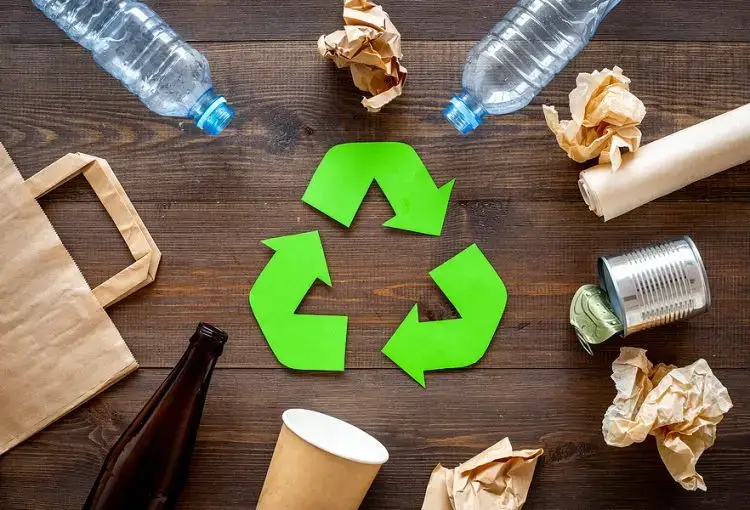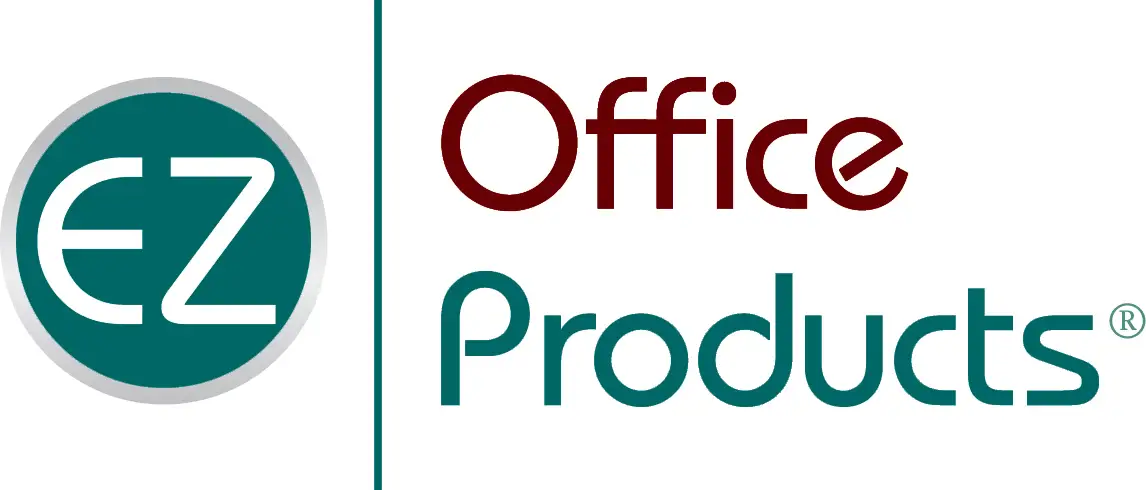Discover how to recycle commonly used office supplies.

Not all materials are recycled equally. We all know recycling is an essential piece of environmental responsibility, but unfortunately, not all materials are recyclable.
In the United States, an estimated 25% of all materials placed in recycling containers aren’t actually recyclable, creating some significant challenges. Recycling contamination, as it’s often called, can increase the cost to process recyclables and can hurt the ability of other recyclable materials to be recycled, creating even more trash.
EZ Office Products is committed to sustainability, and we want to help your workplace set and meet your own sustainability goals. That’s why we’ve put together this helpful guide: The Dos and Don’ts of Recycling.
- Don’t recycle shredded paper, soiled paper, or coated paper
- Do recycle all clean, dry paper
- Don’t throw any food or liquids into the recycling
- Do thoroughly clean any recyclable food or beverage containers
- Don’t try to recycle loose plastic bags
- Do check recycling guidelines for your local community
- Don’t recycle packing peanuts
- Do recycle what you can and reuse what can’t be recycled
- Don’t toss electronic waste
- Do safely dispose of e-waste
Read on to learn more about our dos and don’ts of recycling!
Don’t recycle shredded paper, soiled paper, or coated paper
Soiled or coated paper must be placed in the trash since it’s not easily processed or broken down at recycling centers. Shredded paper is actually recyclable, but only if you do it properly — not mixed in with other recyclables. Check with your city for instructions if you’re not already partnering with a commercial shredding company.
Do recycle all clean, dry paper
Offices tend to go through a lot of paper. Every day, the average office worker goes through about two pounds of paper and paperboard products. That’s why it’s important to recycle as much as you can — as long as it’s clean and dry. This includes computer paper, flyers, note cards, and even sticky notes and envelopes with clear plastic windows. (For items such as file folders, consider reusing them as long as they’re in good shape to maximize sustainability efforts.)
Did you know? There is equipment at paper mills that can remove staples, so you don’t need to remove them before recycling. However, you should rescue any paper clips for future use.
Don’t throw any food or liquids into the recycling
Foods, oils, and other liquids can contaminate the recycling process, so don’t throw them into the recycling bins along with your recyclables! To prevent mistakes, use signage to clarify which bins are for trash and which are for recycling, especially in office kitchens and common areas.
Do thoroughly clean any recyclable food or beverage containers
Make sure to thoroughly rinse or clean any recyclable food or beverage containers before depositing them in the recycling bin to avoid contamination. If a container is heavily soiled and cannot be cleaned, it should go in the trash. Single-use plastic utensils and straws are also not recyclable.
Don’t try to recycle loose plastic bags
The following do not belong with your other recyclables:
- Most plastic bags (including grocery bags, produce bags, newspaper bags, zipper sandwich bags, and some cereal bags)
- Most plastic wraps (such as the wrap that’s around multi-pack drink bottles, paper towels, or feminine hygiene product packages)
- Common shipping materials including plastic pouches and air pillows
Do check recycling guidelines for your local community
Some local recyclers will accept plastic grocery bags with other recyclables if they’re collected and contained within another clear plastic bag. Alternatively, some supermarkets and other stores have drop-off bins for such bags. In the office, you might set up a separate plastic bag collection bin just for this purpose.
You can find more helpful plastic packaging recycling tips here.
Don’t recycle packing peanuts
Some shipping or packaging materials cannot be recycled, including packing peanuts постільна білизна купити, which are made of expanded polystyrene (EPS). If you can’t reuse these around the office, look for a local EPS drop-off site or a mail-back program.
Do recycle what you can and reuse what can’t be recycled
Many other types of packaging materials can be recycled or reused, including clean cardboard boxes фонарик купить, newspaper, and bubble wrap (see above).
Don’t toss electronic waste
E-waste is the name for electronic equipment that is no longer in use тактическая рубашка. The following items can be recycled, but not in your mixed recycling bin:
- Compact fluorescent bulbs
- Batteries
- Computers, laptops, and tablets
- Printers and scanners
- Keyboards and mice
- Speakers
- Power cords and cables
- Network and phone equipment
Do safely dispose of e-waste
Many municipalities and disposal services can help your business get rid of e-waste the right way, whether тактичні джинси the item will go on to be recycled using a specialized process or safely disposed of to avoid landfill contamination.
Education is key to creating an environmentally friendly culture. Share these and other tips around the workplace emerson gear, start a green team, and hang signs that make it easy for employees to understand whether to toss something in the trash or the recycling bin.
You can also find more helpful office sustainability ideas on our blog and shop for eco-friendly office supplies online. To set up your business account, connect with our local customer concierge at (608) 310-4300 today.
